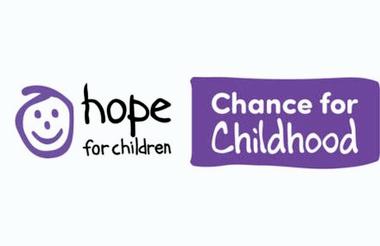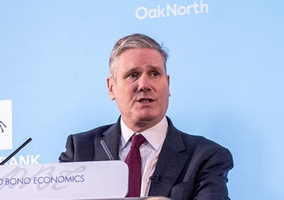A children’s NGO has announced that it has relaunched its “ethical storytelling campaign”, three years on from its initial release, following the campaign’s success.
The campaign, #OverExposed, was first launched by Chance for Childhood, which operates in East and West Africa, in 2022.
It urged the development sector to “rethink its approach to storytelling”, with a particular focus on supporting children in vulnerable situations through “positive, respectful communication practices” which are based around consent.
20 other organisations in international development took a pledge to honour the campaign’s principles and change their approaches to communications.
Among the campaign’s key principles was a move away from the “traditional communication practices” of putting children as the faces of the organisations Chance for Childhood appeals to, which they may not be able to fully consent to or understand.
One of the key changes was to remove identifiable children’s faces from all of an organisation’s communications, including its fundraising materials.
In a blog post on the relaunch, Chance for Childhood communications manager, Ruby Cardona, said: “Our focus on being child-centred has helped reframe the way we approach our communications.
“As the communications manager, I often think how can I use our platform for a child or young person that we work with to tell their story, instead of us speaking on their behalf.”
The charity said it was relaunching the campaign to share what it has learned with the sector and bring “new partners into the movement” to continue to spread more ethical approaches to communications across the sector.
Key lessons learned
Although Chance for Childhood said it lost “80-90%” of its campaign imagery overnight after initially launching #OverExposed, it ultimately managed to source new in-country and out-of-country content over time from photographers and videographers who understood the need to not show children’s faces.
It also said that it had had to build “strong staff awareness on informed consent when collecting content”, which the organisation did through taking time to explain to participants how stories are used and conducting interviews in local languages, as well as giving participants the right to remain anonymous.
Fundraising not negatively impacted by campaign
Chance for Childhood said that despite initially losing a significant amount of its imagery and fundraising materials as a result of the campaign, it proved successful, with no “appreciable drop-in support”.
It added: “Since we launched three years ago, we have seen year-on-year growth in our income.
“In fact, we’ve had interest from funders to learn more and see how they can support, and one foundation asked us recently to present to their marketing team on the principles of the campaign.
According to its most recently filed accounts, the charity’s annual income has grown from around £970,000 in 2021 to around £1.4m in 2024.
Related articles













